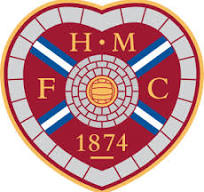What Hearts can expect from Copenhagen and the key weakness
This week, the sixth match of the Conference League’s league round will draw thousands of Heart of Midlothian supporters to Copenhagen.
When they play the Danish titans, Hearts will face their most difficult test to date. However, their victories over Dinamo Minsk and Omonia Nicosia put them ahead of their opponents going into the game. A win in the capital of Denmark will virtually guarantee a trip to the knockout stage.
What can Hearts anticipate from Copenhagen, though? Toke Theilade, editor of Vilfort Park and an authority in Danish football, gave us the facts on the 15-time Danish Superliga champions who eliminated Kilmarnock in qualification.
Could you briefly explain Copenhagen’s role in Danish football and its status as a club?
Right now, they are by far the most formidable Danish club. The strongest club in Scandinavia, in fact. They possess the greatest players, the largest budget, the most money, and Denmark’s largest stadium, where the national team also plays. They have also won the most league titles and have dominated this century.
This season, they have a lot going for them. It’s not an easy challenge because they are playing in the Danish Cup quarterfinal and are leading the league. If you were to look at the table after that, you would assume that everything is as usual in Copenhagen. They are the best. Although it hasn’t been the ideal season, they will most likely be in the cup semi-final when they take a break during the winter.
It was a great disappointment that they didn’t win the league the previous year. Of course, they want to win the championship each and every year. They haven’t been playing very compelling football this year. I believe that the league standings is rather skewed because both Brondby and Midtjylland, who placed in
In Europe, the situation has been somewhat similar. When they played Real Betis away and drew 1-1, they were absolutely fantastic. However, they have also lost to a Polish squad at home. Their victory over Dinamo Minsk in the final round was quite fortunate. As a result, there have been many ups and downs.
This year, I think it’s been more about the individual talent—they just have such a talented team. As a team, they have been winning a lot of games, although they are not as dominant as their opponents. They have struggled in that regard. Actually, I believe that it is an excellent time for Hearts to meet them because it
You mentioned that they had one of the most league titles and were the most dominant team. The fact that they didn’t form until the early 1990s is interesting. How did a young club in Denmark rise to such dominance?
Even though the club is new, I should point out that its foundation is strong because one of the two clubs that joined to create the new Copenhagen was Kjøbenhavns Boldklub, which is, I believe, the oldest club in the world outside of the United Kingdom and the oldest club in Denmark. Therefore, they weren’t created overnight. They were inspired by the merger of two of Denmark’s largest football clubs to become this country’s superpower.
Naturally, there is a lot of promise there as well, given that I’m from Copenhagen. Up until the late 1980s, Danish football was mostly amateur, which makes it a little strange. Brondby, after all, wasn’t the first team to go full-time pro until 1986.
In England, Scotland, and other places where these teams were dominating a century ago, Danish football did not have as lengthy of a tradition. Since this was amateur football rather than commercial, it was considerably more level. It was a far more even and level playing field.
Copenhagen has a solid basis thanks to its two major teams, large budget, and numerous sponsors from Denmark’s largest and wealthiest city. Furthermore, we must acknowledge that money isn’t the only consideration. They have performed admirably.
For them, the 1990s were a little challenging. They needed to get their feet and all that. Naturally, Brondby was in charge at the moment. However, it was when they signed Roy Hodgson that things really changed for them. He was incredibly forward-thinking and established the groundwork. He set the groundwork for Copenhagen to play like this, 4-4-2, tactically powerful, physically strong, even though I know that’s not really how people view him now. They have been playing that style for the past 25 years. They can intimidate their opponents in the domestic league because to their technique. Additionally, it’s a style that endures in European football since, in contrast to many other Danish
The fact that winning the Danish league is, of course, ingrained in Copenhagen’s DNA is the main reason for their success. It goes without saying for large clubs. However, European football is crucial to them, just like it is for many of the larger clubs. It truly is a component of who you are. Over the years, they have also produced some incredibly impressive outcomes in Europe. They were in the round of 16 of the Champions League the previous season, and they had already defeated Manchester United.
Winning the Conference League is the aim. They are undoubtedly among the best five teams in this tournament, in my opinion, though I’m not sure whether that is feasible. They do not simply play European football to compete; they are playing to win, and they are not content to merely be there. They do have expectations. They have big aspirations and strive to accomplish things. It has a significant role in the identity.


